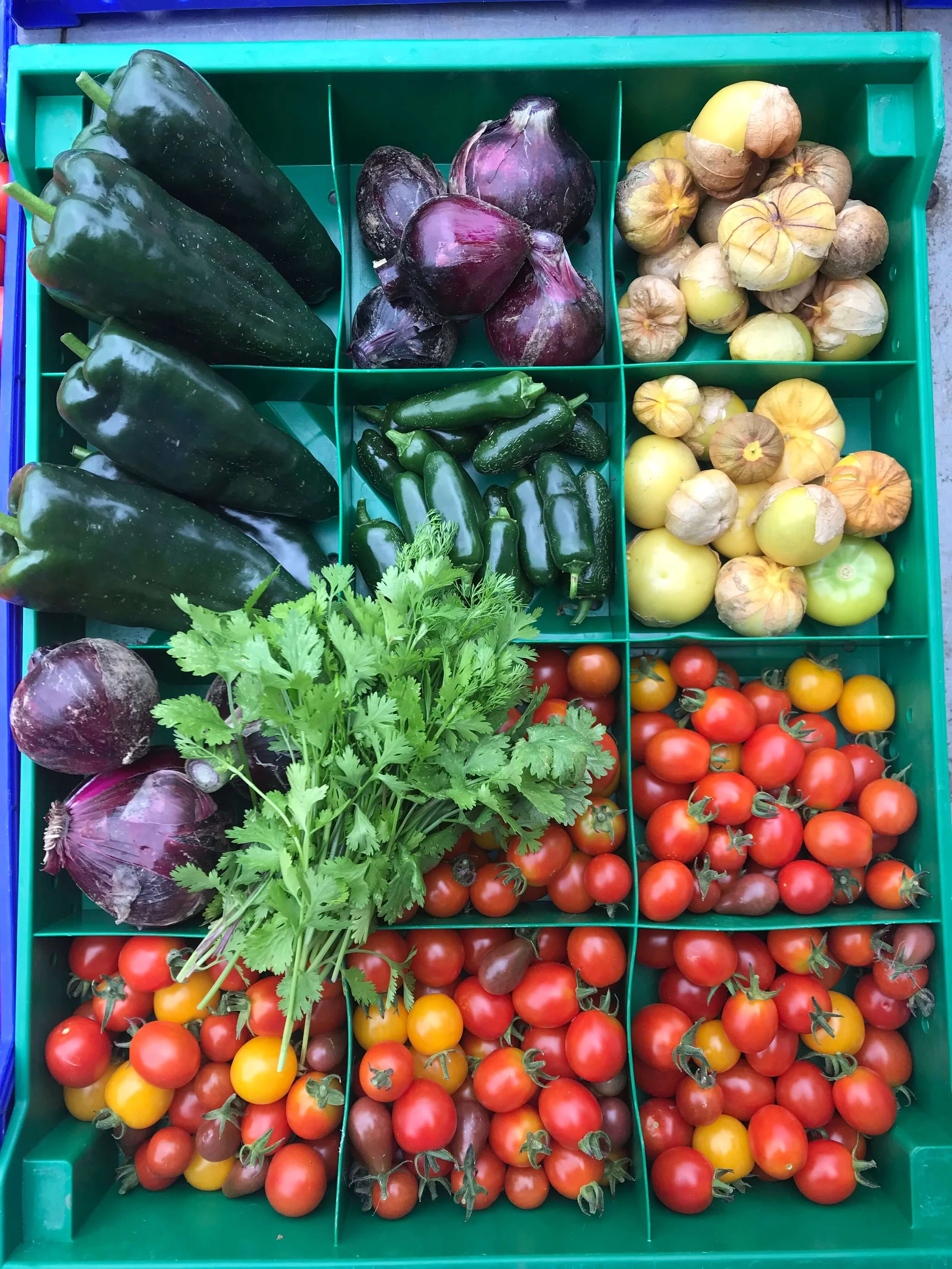The Skinny on Seedlings
Last week, we reached a milestone in our annual farm schedule. For the first time since Feb. 7th, we didn’t seed one thing in the greenhouse. From February to early July, every week and sometimes twice a week, we make up batch after batch of a potting medium we call blocking mix. This blocking mix is moistened with water and pressed into blocks into which seeds are planted. The seeds germinate and grow for a certain amount of time in a sheltered greenhouse. Once they are big enough, we relocate (transplant) the young plants out into the soil in our field. Squash and cucumbers germinate quickly and are set out after only 10 to 14 days. At the other end of the spectrum, crops like parsley are sown almost fifteen weeks before the plants are big enough to be transplanted.
Because growing transplants is a labor and time intensive process, many farmers direct seed their crops. That means they put the seeds right out in the field soil. We typically direct seed very few crops for a number of reasons. By raising seedlings, we can care for a large number of plants in a limited square footage while they are at the critical and very fragile stages of germination and early growth.
But we also prefer to transplant our crops because of weed pressure. Most seeds take 7-21 days to germinate and another week to grow their first true leaves. By contrast, our annual weeds can sprout and grow inches tall in less than 14 days. By transplanting our crops, we can better manage the weed pressure in our fields and give our market crops a big head start. Transplanting ensures healthy, robust plants are located in the field at a uniform spacing, which eliminates crop thinning and cuts down on a lot of weeding because those vegetables grow big leaves that shade out competition.
Another very important reason we transplant is that it allows us to lengthen the harvest season for many crops. For instance, we sow our tomato seed in a greenhouse in late February. This keeps the seeds warm and dry, which is the exact opposite of rainy, cold spring weather typical of our area. By contrast, if we were to direct seed tomatoes, we’d have to wait until late May for the weather to be nice enough for the seeds to germinate. Because we transplanted our tomato plants, we were able to start harvesting the fruits in early July. If we had waited to direct seed in late May, we wouldn’t have tomatoes until late September. And shortly thereafter, the plants would easily be killed by fall frosts. Gah! Can you imagine? That would make for a miserably short salsa season!
And finally, we choose to transplant most of our crops because it allows us to take better care of our soil. We don’t need to be out in the fields early in the spring when the soil is very wet and fragile and is easily compacted. We don’t need to continuously mechanically pulverize our soil or use herbicides to reduce the weed pressure so that tiny seeds stand a chance of growing. This is the most important reason of all—we transplant because it is the right thing to do for the health of our most precious asset – the soil.
Now, growing all our own transplants is an extremely labor intensive process—there is no way around the fact that every plant is touched by our hands multiple times – at seeding, when we uppot (move the small seedlings into larger pots), and again at transplanting. By my count, we have grown close to 51,750 seedlings in the last six months. Such effort requires consistency, hard work, a lot of love, and sometimes, a sense of humor…
A few weeks ago, I was out transplanting lettuces when my Dad drove down the lane. He stopped, rolled down the truck window, and asked what I doing. I showed him the seedlings and was about to launch into one of my organic farming spiels about the value of healthy transplants. But before I could say a word, he grinned at me and said, “Why don’t you just put the plants where you want them in the first place?”
Oh Dad jokes. Every year, we seem to grow a pretty good crop of those too. ~ AJ
“Kindness is just love with work boots on.”

